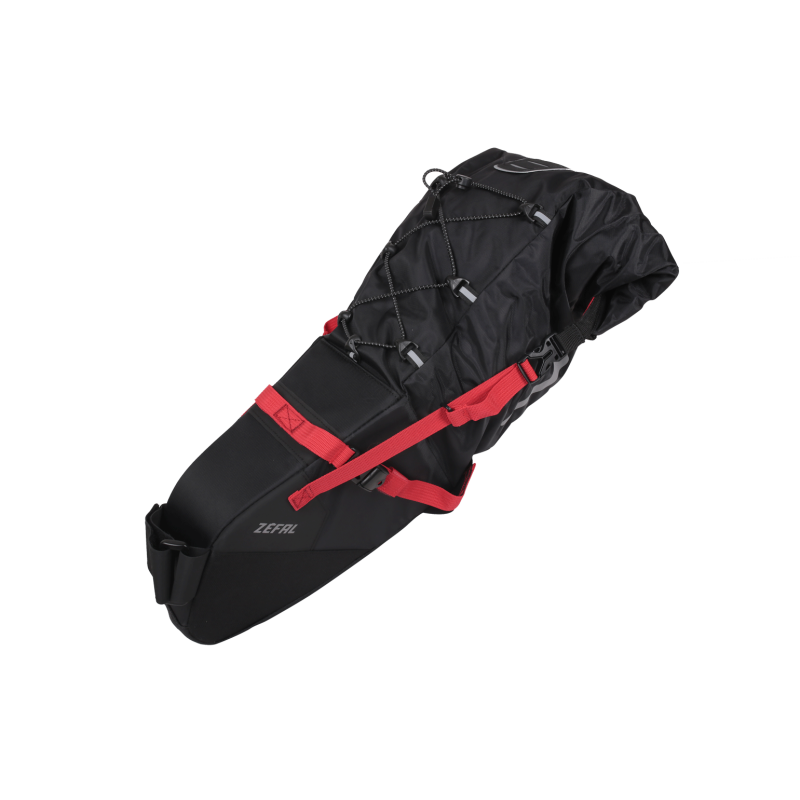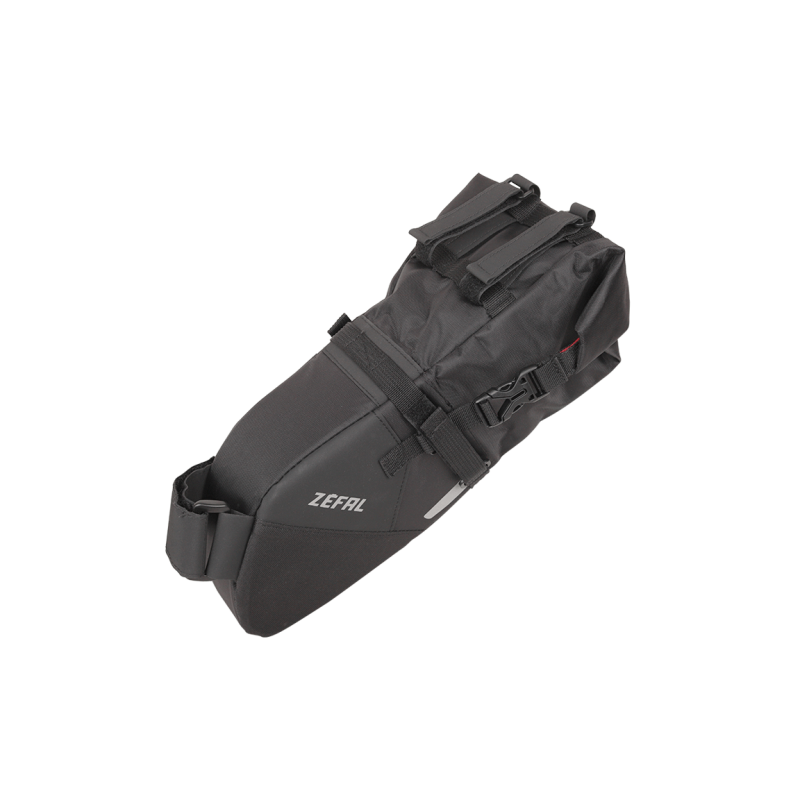.jpg)
Advice and tutorials
HOW TO CHOOSE YOUR BIKEPACKING SADDLE BAG
It is practical and essential for the bikepacking fan, it is the saddle bag! According to its different sizes, it can be adapted to many types of bike trips without having to mount a rack on your bike. Its format will allow you to go on a trip with a road or gravel bike and to ride on rougher roads than during a classic bike trip. The choice of the bikepacking saddle bag is crucial depending on whether you are going on a one-day trip or a multi-week trip. First we will present you our different saddle bags designed for bikepacking, then we will show you how to use them and how to fill and secure your saddle bag so that it does not hinder your progress on your bike!
If you are looking for a more traditional saddlebag, then click here !
The bikepacking saddle bags
The saddle bag is greatly appreciated by bikepacking enthusiasts because of its ability to easily carry your gear over long distances without having to install a rack on your bike. Most of the time, it is used in addition to other bags such as frame bags or front bags!
Bikepacking saddle bags are different from other types of saddle bags in that they are waterproof and have a large volume, while not interfering with the rider's steering, pedaling and balance. When you are going away for several days, the weather can be an important random factor, that's why it is absolutely necessary to have a waterproof saddle bag for Bikepacking in order to keep your stuff dry a minimum!
These saddle bags will be easily and quickly attached under the saddle and to the seatpost for good stability. Several straps and anti-tear reinforcements will reinforce the bag so that you don't lose all your stuff at the slightest shock on the way! Being a cyclist is about seeing and being seen.. During a bikepacking trip, it is very important that other road users can see you, that's why reflective strips and lighting loops are necessary, especially on a saddlebag that will be located at the back of the cyclist.
« Choosing the right bag means defining its future use: tool kit or travel bag? »
Simon, bikepacking product manager at Zéfal
At Zéfal, we have developed 3 different saddle bags for bikepacking. The Z Adventure R5 is the bikepacking saddle bag that will be suitable for long day rides with uncertain weather (carrying rain gear) or with steep climbs (carrying warm clothes to cover up at the top of the passes). With its 5L volume, it will be a perfect alternative for those who don't want to take a backpack with them!
For example, items to put in your R5: a windbreaker or light jacket, a neck warmer, cuffs, gloves, a cap.
The Z Adventure R11 is a large volume waterproof bag, 11L in this case, which will be perfect for light rides and endurance races, its volume will allow you to carry the essentials while preserving the aerodynamics and responsiveness of your machine. The items you can put in your R11: a tarp, an ultra light sleeping bag, a windbreaker, a light jacket, thermal underwear, a cap.
Finally, the Z Adventure R17 is THE bikepacking saddle bag by excellence! Waterproof like its little sisters, its large volume of 17L will allow you to carry a good quantity of equipment with you over very long distances and over several days. Some of the things you can pack in your R17 : a tarp, a compact sleeping bag, an ultralight mattress, an ultralight pillow, pants and a tee-shirt, thermal underwear, a windbreaker, a sleeveless jacket, a neck warmer, gloves, a cap.

How to organize your bikepacking saddle bag?
It is important to fill your bikepacking saddle bag correctly in order to keep a good balance on the bike. We advise you to start with the heaviest and least useful products at the bottom of the saddle bag, they will not be easily accessible and the best thing is to avoid unpacking all your stuff each time you open your saddle bag! You will be able to store clothes in your saddle bag, we advise you to roll them up to save space!
Above all, remember to fill your saddle bag on the ground first, then install it on the seatpost. This will ensure that it is properly secured for the weight it is carrying and that you don't have loose straps or a loose saddle bag. In order to secure your bag, start by pre-positioning the larger clamp on the seatpost. Then, pass the straps through the saddle rails and bring the bag closer to the saddle by pulling on the straps until they are attached to the bag. Finally, tighten the bag on the seatpost to secure it completely.
« Once again, there is no magic answer to the question of volume: large volume = more peace of mind, limited volume = less weight and more performance. »
Simon, bikepacking product manager at Zéfal
Our largest bags (R11 and R17) also have an extra elastic cord! This will allow you to have access to one of your equipment that you might need quickly like a windbreaker in case of sudden weather change or a water bottle in case of high temperatures, without having to unpack your whole saddle bag.
Find out how to properly install your bikepacking saddle bag with our dedicated tutorial :




